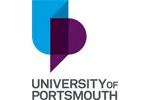We're moving! This site will be relocating to goingto.university in 2026. Please update your bookmarks to the new address.


the United Kingdom
University of Portsmouth| The award | How you will study | Study duration | Course start | Domestic course fees | International course fees |
|---|---|---|---|---|---|
| MSc | Full-time, Part-time | 1 - 2 year | September, January | - | - |
Overview
If you're interested in a career helping athletes achieve their performance goals, prevent and accelerate recovery from injury, and improve their overall health, this Master's in Strength, Conditioning and Rehabilitation is ideal.
You’ll develop your skills in the Portsmouth Elite Athlete Centre (PEAC) - an industry-leading strength, conditioning and rehabilitation facility, and in our biomechanics laboratories, using the same equipment and methods applied in professional sport and practice.
When you graduate, you'll be equipped with the technical knowledge and professional skills to succeed in this growing industry, whether as part of an organisation or as a freelance practitioner. You'll be ready to confidently and effectively develop and rehabilitate athletes of all abilities and backgrounds.
Course highlights
The theoretical approach on this course is designed to enhance your understanding of physiotherapy – it doesn't offer the physiotherapy accreditation needed to practise as a physiotherapist but does develop the technical knowledge needed to succeed in the rehabilitation profession.
Accreditation
This course is accredited by the International Universities Strength and Conditioning Association (IUSCA). The IUSCA is the regulatory body for strength and conditioning within the higher education sector and recognise the best courses through their Degree Accreditation programme. Students who complete this IUSCA accredited course will be directly eligible for Accredited International Strength and Conditioning Practitioner (aISCP) status.
Career development
Strength and conditioning is a growing profession and the ability to offer rehabilitation to athletes is becoming a requirement for many positions in the sporting and fitness industries. So you're likely to have a lot of employment options when you graduate.
You could work as a strength and conditioner or rehabilitation, strength and conditioner at all levels, including in club, national, international organisations, as a self-employed practitioner or within a club or sporting organisation.
You could also go on to gain further vocational qualifications with organisations such as the UK Strength and Conditioning Association (UKSCA), National Strength and Conditioning Association (NSCA) and the British Association of Sport and Exercise Sciences (BASES).
https://www.port.ac.uk/study/masters-and-postgraduate-taught/fees-and-funding
An upper second-class honours degree in a relevant subject or a master's degree in an appropriate subject. Exceptionally, equivalent professional experience and/or qualifications will be considered.
English language proficiency at a minimum of IELTS band 6.5 with no component score below 6.0.
Below are some suggested courses at other providers that you may also be interested in:
Graduate Diploma of Engineering (Electrical Systems) Graduate Diploma
Engineering Institute of Technology
Find out moreFinance and Economics Graduate Diploma, Graduate Diploma, MRes, MSc, Graduate Diploma
Queen Mary, University of London (QMUL)
Find out moreGraduate Diploma of International Affairs Graduate Diploma
Australian National University
Find out moreGraduate Diploma in Energy and Resources Law Graduate Diploma
The University of Melbourne
Find out moreIf you do not meet the entry requirements for this course then consider one of these postgraduate preparation courses from another institution:
Graduate Diploma of Engineering (Electrical Systems)
Engineering Institute of Technology
Find out moreThere are 531 other courses listed from University of Portsmouth. A selection of these are displayed below:
Join the StudyLink email list and never miss a chance to turn your study abroad dreams into reality!
